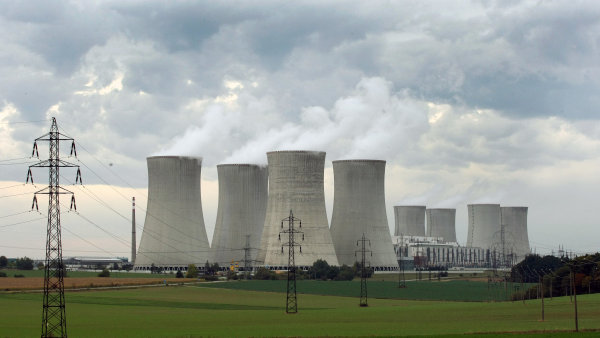
ŠESTIMĚSÍČNÍ KURS ANGLIČTINY - PROFESSIONAL ENGLISH 14
Gas industry by Margaret O'Keeffe
Pre-reading task
What is gas flaring?
In which countries is flaring a common practice?
Which African country produces the most crude oil?
Now read the article and compare your answers with the facts in the text.
During the production of oil by energy companies, unwanted natural gas is regularly burned off and released into the atmosphere. This is known as 'gas flaring' - a cheap but environmentally damaging process. There are a number of reasons for flaring. In the past, gas was considered to be a waste product and global warming was not an issue.
Second, contracts between governments and oil companies allowed flaring, and there was no obligation to find a market forthe gas that was found while exploring for oil. A third issue is that, until recent years, there hasn't been such a developed market for gas as there was for oil, and it's much more difficult and costly to get gas to consumers.
As a result, oil-producing companies burned off gas worth $40 billion at 2007 US prices. That's equivalent to 5.5 per cent of the world's total production of natural gas, according to one recent study of flaring.
The negative impact of flaring is threefold. It represents a waste of energy, it causes serious health and contamination problems for local communities in oil-producing areas, and it contributes to greenhouse gas emissions.
Nowadays, gas flaring is increasingly recognised as a large environmental problem, contributing more than one per cent to global emissions of CO2. Eight countries - Algeria, Angola, Indonesia, Iran, Mexico, Nigeria, Russia and Venezuela - account for 60 per cent of flaring worldwide, according to World Bank estimates. By contrast, in western Europe, 99 per cent of 'associated' gas, found during oil exploration, is used or reinjected into the ground.
Nigeria is Africa's biggest producer of crude oil and flaring levels are the highest in the world. Nigeria currently burns off almost half of its daily production because the gasgathering network is insufficient. In fact, over the past 45 years, most of the natural gas discovered, together with the country's oil, has simply been burned off.
Governments and the energy industry have been trying to cut back on flaring for years, but with little success. The total volume of gas flared each year has been more or less the same since the mid-1990s. Nigeria's government is now committed to ending gas flaring by the end of 2008, but several Western oil companies have already said they cannot meet the deadline.
Natural gas is now seen as a valuable natural resource, and there is increasing investment in gas-gathering networks. However, at a time of high oil prices, there is pressure on oil companies and governments to favour higher levels of oil production, which, in turn, leads to higher levels of gas flaring.
Exercise 1
Vocabulary: Matching. Choose the correct words (a to g) to fill the gaps in the sentences:
1 Minerals, oil, forests and coal, which can be found and used by people, are all examples of ........
2 We call the gradual increase in world temperatures, which are caused by
polluting gases, ........
3 A ........ is an unwanted or unused substance produced during a process.
4 Unrefined, liquid petroleum as it comes out of the ground is known as ........
5 ........ refers to negative, harmful effects on air, water and land.
6 A ........ is the infrastructure needed to capture, collect and distribute gas.
7 Two examples of ........ are carbon dioxide and methane.
a waste product
b global warming
c greenhouse gases
d crude oil
e gas-gathering network
f natural resources
g environmental damage
Exercise 2
Comprehension: True/False. Read the article and decide if the following statements are true or false:
1 Flaring is a process used to produce natural gas.
2 Governments have traditionally prohibited energy companies from flaring.
3 It's more expensive to collect and distribute gas than oil.
4 Flaring is one factor contributing to global warming.
5 Over half of global gas flaring occurs in Europe.
6 Due to poor infrastructure, nearly 50 per cent of gas is burned off in Nigeria.
7 It's likely that oil production will soon fall in favour of gas production.
Word search

See if you can find these words in the grid. They can be horizontal, vertical, diagonal and backwards.
AS_OCIATED
FLAR_NG
CONSUM_R
IMP_CT
DEAD_INE
RELEAS_D
EMISSIONS
RESOU_CE
EXPLOR_NG
VALUAB_E
Soutěžte s námi o kurz angličtiny professional english
Každé pondělí najdete na adrese www.britishcouncil.cz
pod bannerem Win a Free Course kvízovou soutěžní otázku. Soutěž bude vyhodnocena šestkrát, vždy po 4 týdnech. Každý z 6 výherců získá kurz angličtiny od British Council v hodnotě 10 500 Kč.
The Ideas Factory

Více informací o jazykových kurzech angličtiny najdete na www.britishcouncil.cz
For more business English articles and exercises go to: www.britishcouncil.org/professionals.htm

 Přidejte si Hospodářské noviny
mezi své oblíbené tituly
na Google zprávách.
Přidejte si Hospodářské noviny
mezi své oblíbené tituly
na Google zprávách.
Tento článek máteje zdarma. Když si předplatíte HN, budete moci číst všechny naše články nejen na vašem aktuálním připojení. Vaše předplatné brzy skončí. Předplaťte si HN a můžete i nadále číst všechny naše články. Nyní první 2 měsíce jen za 40 Kč.
- Veškerý obsah HN.cz
- Možnost kdykoliv zrušit
- Odemykejte obsah pro přátele
- Ukládejte si články na později
- Všechny články v audioverzi + playlist




